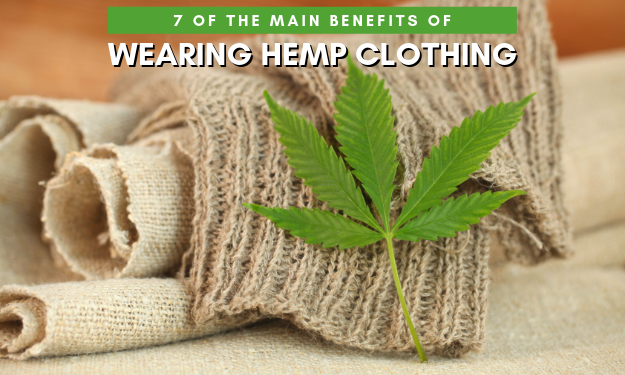New Advice To Picking Hemp Clothes
Wiki Article
What Are Some Benefits That Low Impact Fibres Hemp Clothing Can Offer The Environment.
Hemp clothing that is low impact has several environmental advantages when compared to clothes made of other materials. They include synthetic fibers, cotton and traditional cotton. Hemp clothing has many advantages for the environment. It grows rapidly and requires little water, herbicides, or pesticides. Hemp thrives in a variety of climates. It also is able to adapt to different soil varieties.
Hemp typically uses a lot less water than traditional cotton. Cotton is renowned for using plenty of water. It makes hemp clothes a more efficient option when it comes to water.
No Pesticides and Herbicides- Hemp can be grown without the need to use synthetic pesticides or herbicides in most cases, reducing the environmental impact of chemical agriculture.
Soil Health- Hemp cultivation can improve soil health due to its deep root system which prevents compaction and erosion of soil. This helps make the soil more fertile to plant in the future.
Hemp is biodegradable. It degrades naturally over time, and it reduces the amount of textile waste. In contrast, synthetic fibers like polyester can decompose over hundreds of year.
Lower Carbon Footprint: Hemp fibers are produced with a lower carbon foot print that synthetic materials. In addition, hemp has the ability to absorb carbon dioxide throughout its growth, and serve as a carbon storage.
Hemp clothing can last for many years. Good quality hemp clothing lasts for many years, which reduces the need to replace them regularly.
Hemp plants are naturally resistant to pests. This means that there is less necessity for pesticides.
The versatility of Hemp can be used in a variety of textile uses that include bags, clothing and accessories, making it a sustainable and versatile choice for fashion and textiles.
Regenerative Agriculture: Some sustainable farming practices integrate hemp into regenerative agricultural systems, which aim to enhance and maintain ecosystems while producing crops. This method could be beneficial to the natural environment.
It is crucial to keep in mind that, while hemp can provide numerous environmental advantages, the sustainability of clothing depends also on other factors like the process of dyeing, transportation, consumer behavior, etc. As with any industry there are variations in the standards and practices used for production. It's essential to pick organic clothing that is certified sustainable or organic to get the best environmental benefits. Take a look at the best hemp clothing url for site info including hemp sportswear, hemp jeans mens, hemp button down shirt, hemp shirts, hemp shirts, patagonia island hemp pants, hemp t shirt mens, t shirt hemp, hemp work pants, hemp underwear and more.

What Makes Hemp Clothing Superior In Terms Of Functionality And Technology Than Traditional Fibres.
Hemp clothing can offer several technological and functional advantages over traditional fibers while also being eco-friendly. Here are some of the ways that hemp clothing stands in a way as an eco-friendly high-performance, high-performance product- Moisture Wicking & Breathability
Hemp fibres are extremely permeable. They also wick away water, making hemp clothing extremely comfortable under all kinds of conditions. They help to wick away water, which keeps the wearer cool and dry in hot weather.
Temperature Regulation-
Hemp clothing is a great thermoregulating properties. Hemp clothing can help to keep you warm by capturing heat near the body, and help cool you down during hot temperatures by allowing heat and moisture to be able to escape. The natural thermoregulation process can decrease the frequency of changes in clothing.
Durability-
Hemp fibers are known for their durability. Clothing made from hemp is more durable and resistant to wear than clothes constructed from other fibers such as cotton. This means hemp clothing can last for a longer time. It also means fewer requirement for regular replacements.
UV Protection-
Hemp fibers help protect skin from harmful UV radiations. This can be particularly useful for outdoor activities and sports.
Biodegradability:
Hemp clothing degrades naturally with time. This helps to reduce the environmental impact of textile trash. Synthetic fibers can remain in landfills for long time.
Low environmental impact-
Hemp is usually grown using less herbicides, pesticides and synthetic fertilizers than cotton. It is also environmentally sustainable since it requires less. The eco-friendly aspects are further enhanced by organic farming.
Carbon Sequestration-
Hemp can be utilized to capture CO2 from the atmosphere. The cultivation of hemp acts as a carbon sink, which aids in reducing the level of greenhouse gases.
Sustainable Crop Rotation
Hemp is also a good addition to the crop rotation systems. This helps improve the health of soils while reducing the likelihood of disease development and soil depletion. This environmentally friendly farming method is made possible by the sustainable farming practices.
Versatility:
Hemp fibers are a flexible material that can be blended with organic cotton, recycled polyester or other substances to make sustainable fabrics. This versatility enables the development of innovative, sustainable textile products.
Low Toxicity-
Hemp fibers are low in toxicity, by nature, and do not require chemical processing. They reduce the environmental impact associated with textile production.
It is important to be aware that while hemp does have many environmental benefits, including functional ones however, its overall sustainability is dependent on other factors like the process of dyeing, transportation and ethical working practices. If you're interested in making an an environmentally-friendly choice, look for clothing companies that prioritize sustainability and transparency by using hemp fibers and other eco-friendly materials in their designs. Read the top hemp clothes hints for blog advice including hemp tees, hemp polo shirts, organic hemp clothing, hemp garments, hoodlamb jacket, patagonia hemp jacket, jungmaven t shirt, hemp clothing near me, hemp denim, womens hemp clothing and more.

Bamboo Clothing Is Environmentally Friendly And Incredibly Comfortable.
Bamboo clothing is eco-friendly and comfortable.
Softness- Bamboo is renowned for its incredibly soft. It's smooth and silky to touch, making it a comfortable skin. Bamboo clothing is extremely soft and popular for loungewear, activewear, intimate clothing, and different kinds of clothes.
Breathability Bamboo fibers breathe and help to wick away moisture. Micro-gaps allow for air circulation, which helps keep you cool in hot weather. Moisture-wicking fabric helps draw sweat away from your skin and reduce the sensation of dampness.
Bamboo clothing is great for thermoregulation. It can help keep you warm during cooler temperatures by capturing heat close to your body. In hot temperatures, it will keep you cool by allowing excess heat and moisture to escape. Bamboo can adjust to a variety of temperatures, it's suitable for all seasons.
Bamboo fabric is hypoallergenic and soft for sensitive skin. It is less likely cause an allergic reaction or irritation. This is why it is a good option for people with skin sensitivities and allergies.
Bamboo fibers have natural antimicrobial properties which can help in preventing the growth of odor-causing bacteria. This makes bamboo clothing staying fresh even in the midst of physical exercise.
Environment-
Sustainability- The bamboo plant is a renewable, sustainable resource. Bamboo is the fastest growing plant in the world. It requires a minimum amount of water to grow and requires no pesticides. Bamboo can be harvested and not kill the plant, as it is able to regenerate by regenerating its roots.
Bamboo is a water-efficient plant that is water-efficient. Bamboo can flourish with little irrigation and can often be grown using rainwater alone which reduces the environmental impact that comes with the use of water in agriculture.
Biodegradability. Bamboo clothes are biodegradable. They naturally decompose as time passes. This reduces the amount of non-biodegradable textiles dumped in landfills.
Carbon Sequestration. Bamboo can be utilized to sequester CO2 during its rapid growth. Bamboo farming is a great way to reduce greenhouse gas emissions and act as a carbon source.
Chemical Reduction. The production of Bamboo Fabric typically involves fewer treatment and processes as compared to other types of textiles.
Closed-Loop Manufacturing Certain bamboo fabric manufacturing processes utilize closed-loop manufacturing, which recycles and reuses water as well as chemicals to minimize waste and environmental impact.
It is important to note that the effect of bamboo clothing on the environment may differ depending on the type of manufacturing process used, and whether bamboo was sourced ethically and sustainable from the bamboo forest. If you're hoping to get the most environmental benefits from bamboo clothing, search for environmentally-friendly and ethical production methods. Read the most popular get more info for bamboo clothes for website info including sustainable bamboo clothing, carter's bamboo pajamas, bamboo polo shirts, kate quinn bamboo, bamboo jeans, bamboo pants ladies, bamboo clothing brand, bamboo boxer shorts for men, bamboo pants, bamboo cotton shirts and more.
